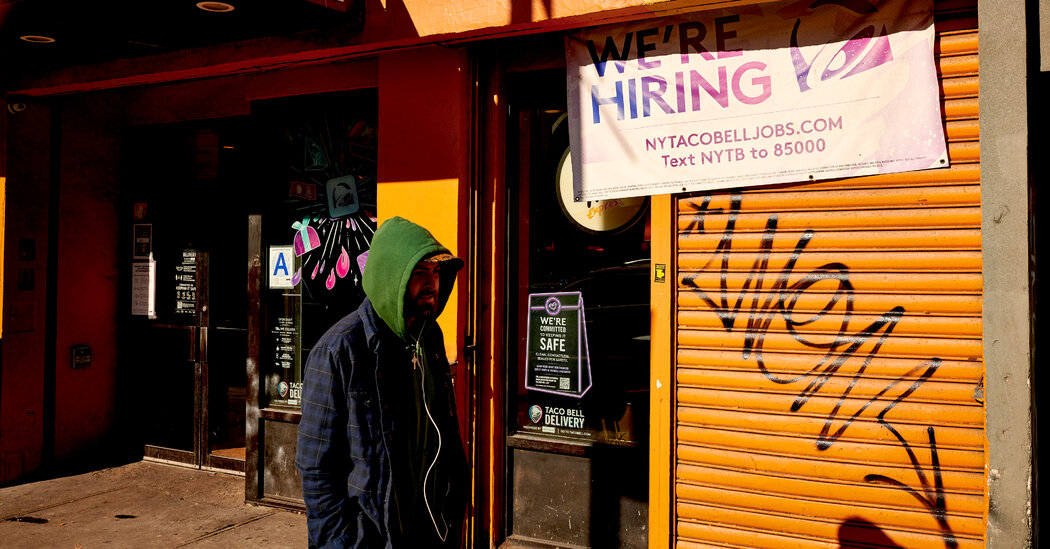
There are signs that the worst of the turbulence was beginning to ease late last year. The number of job openings posted by employers fell in November, the Labor Department said Tuesday, though it remained high by historical standards. Hiring picked up, too. Earlier data showed that more people returned to the labor force in November, and various measures of supply-chain pressures have begun to ease.
But that was before the explosion in coronavirus cases linked to the Omicron variant, which has forced airlines to cancel flights, businesses to delay return-to-office plans and school districts to return temporarily to remote learning. Forecasters say the latest Covid-19 wave is all but certain to prolong the economic uncertainty, though it is too soon to say how it will affect inflation, spending or the job market.
Despite the demand for workers and the pay increases landed by some, Americans are pessimistic about the economy. Only 21 percent of adults said their finances were better off than a year ago, according to a survey released Tuesday — down from 26 percent when the question was asked a year earlier, even though, by most measures, the economy had improved substantially during that period. The survey of 5,365 adults was conducted last month for The New York Times by Momentive, the online research firm formerly known as SurveyMonkey.
Overall consumer confidence is at the lowest level in the nearly five years Momentive has been conducting its survey. Republicans have been particularly pessimistic about the economy since President Biden took office a year ago, but in recent months, Democrats, too, have become more dour. Other surveys have found similar results.
Inflation appears to be a big reason for people’s dark outlook. Most respondents in the Momentive survey said inflation had not yet had a major effect on their finances. But nearly nine in 10 said they were at least “somewhat concerned” about inflation, and six in 10 said they were “very concerned.” Worries about inflation cross generational, racial and even partisan lines: 95 percent of Republicans, 88 percent of independents and 82 percent of Democrats say they are concerned.
“Pretty much the only group of people who say they’re better off now than they were a year ago are people who’ve gotten a pay raise that matches or beats inflation,” said Laura Wronski, a research scientist at Momentive.







